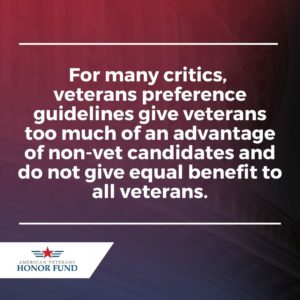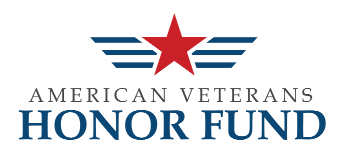For those who volunteer to serve our nation, a career in the military can have innumerable career benefits. Soldiers receive world class training for a host of skills which can translate into success in the private sector and in government, and transitioning veterans into the labor market has been a top priority for the government in recent years. In the private sector, the government incentivizes the hiring of unemployed veterans through a tax credit system for prospective employers. But in government, veterans who apply for federal positions benefit from a preferential hiring metric which helps veteran candidates rise to the top through rules established by the Office of Personnel Management. Now, there are those who believe Veterans Preference for hiring must be reformed.
The Federal Labor Force
The federal labor force consists of thousands of employees and nearly a third of whom are veterans. Directives imposed by the federal government have prioritized the hiring of veterans into the federal workforce for those who meet certain qualifications. Not every veteran will qualify for preference under current codes. From Feds Hire Vets: “In accordance with title 5, United States Code, Section 2108 (5 USC 2108) veterans’ preference eligibility can be based on dates of active duty service, receipt of a campaign badge, receipt of a Purple Heart, or a service-connected disability.” In the current format, veterans preference is reserved for those who have received an honorable discharge, suffer from service based disabilities, or who were deployed in overseas conflicts.
But in recent years, many critics have said the system needs reformation to provide more equitable hiring practices between all veteran candidates and to also restrict some of the advantages received by veteran candidates in general. In an article published in June of 2020, Military Times notes “Advocates pushing for a major overhaul to the federal veterans preference hiring rules insisted…that broadening eligibility but limiting program use could benefit both job seekers and department managers looking for military talent.” For many critics, veterans preference guidelines give veterans too much of an advantage of non-vet candidates and do not give equal benefit to all veterans.

One such critic is Joe Heck, chairman of the National Commission on Military, National, and Public Service, who advocated for a reform of these hiring practices before a Senate Homeland Security & Government Affairs hearing. He testified that “The preference (program) has become inequitable; Not all veterans are preference eligible, and even those eligible for preference are treated differently, so that many veterans receive little or no practical benefit.”
Heck went on to argue that, “A veteran who tries to use veterans preference, even if judged as minimally qualified, can float to the top of the qualified list and be hired over better candidate…And that’s probably putting them into a job they aren’t qualified for.”
Reforms to Veterans Preference
In 2017, the National Commission on Military, National, and Public Service, headed by Heck, was established with the intent of “finding ways to better engage citizens in government,” according to Military Times. In March of last year, Heck’s commission produced a 245-page report outlining their suggestions to overhaul the veterans preference guidelines.
Under the suggestions made by the commission, reforms to veterans preference would no longer use veteran status as the primary qualification in establishing the preferred candidate. Instead, equally qualified candidates would then use military service as a tiebreaker. In this scenario, advocates argue that the best qualified individuals would be entering the position and veterans would still get the edge against a non-veteran candidate.
These proposed changes from Heck would also include expanding the pool of qualified veterans beyond the current requirements listed above. However, these proposals would also limit the eligibility period to within 10 years of a candidate’s separation from the military and limit veterans to benefitting from such service-based preference twice when applying for a new job or transfer of positions. This would refocus the program to prioritize recent veterans’ transition into civilian careers. This is not the first time critics of the current veterans preference guidelines have called for them to be reformed. Reforms were nearly passed in 2016 before then chairman of the Senate Armed Services Committee, John McCain, vowed to block them from that year’s National Defense Authorization Act. But the challenge then is the same challenge now facing those who view preference guidelines as flawed. Lawmakers must find a way moving forward to optimize talent in the federal workforce while also honoring the sacrifices made by those who have put their lives on the line for our country.
Image Credit: Photo by Koshu Kunii on Unsplash
There are many marketable skills that veterans acquire through their military careers and veterans go on to work in countless industries across our country. Many veterans end up working in government. Yet, the data suggests that for the veterans who do end up working in government, the pay is often less than what their counterparts are earning.


